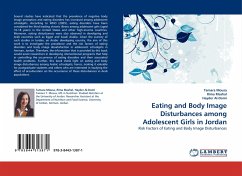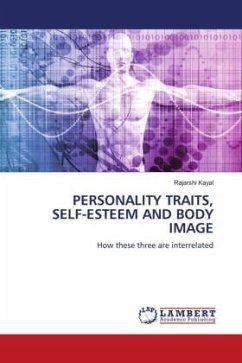
Body Image and Eating Disorders
Versandkostenfrei!
Versandfertig in 1-2 Wochen
78,99 €
inkl. MwSt.
Weitere Ausgaben:

PAYBACK Punkte
39 °P sammeln!
One of the paradoxes of our current era is that only 10% of obese or overweight people are actually dieting, whereas nearly 20% of the remaining population are trying to lose weight, even if they do not need to. This volume looks into our contemporary relationship with food by inserting current body image and eating disorders, like orthorexia and bigorexia, into a broader, historical overview. Gabrielli and Irtelli combine their knowledge of psychoanalysis and anthropology with scientific research and clinical experience to create this truly interdisciplinary work. Their study uses psychoanaly...
One of the paradoxes of our current era is that only 10% of obese or overweight people are actually dieting, whereas nearly 20% of the remaining population are trying to lose weight, even if they do not need to. This volume looks into our contemporary relationship with food by inserting current body image and eating disorders, like orthorexia and bigorexia, into a broader, historical overview. Gabrielli and Irtelli combine their knowledge of psychoanalysis and anthropology with scientific research and clinical experience to create this truly interdisciplinary work. Their study uses psychoanalytical theories about our 'hyper-modern' times to trace the impact that mass media has on individuals, families and societies. It explores various 'food tribes' and exposes the contradictions of today's mass media that advertise fitness and dieting alongside increasingly tastier and accessible foods. The work helps us to understand our highly social relationship with our bodies and what we eat.














